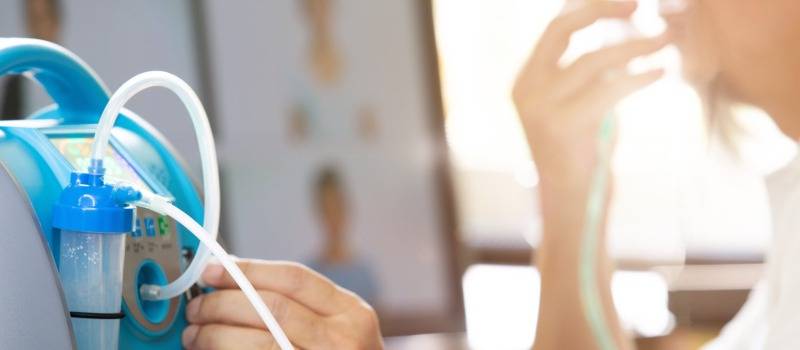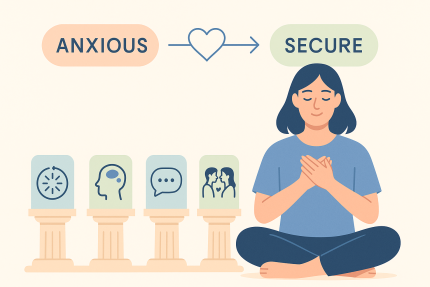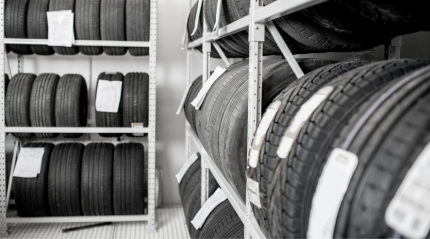Pulse Oximeters and Oxygen Concentrators: What to Know
- 22 September 2022

Having a good heart means you'll live a long and healthy life. To prove it, all you need are a few instruments. One of which is a pulse oximeter. This device gives an accurate assessment of your health by measuring the oxygen saturation levels in your blood. If you're not familiar, blood oxygen saturation measures the amount of oxygen carried by the red blood cells in your blood. The higher the percentage, the greater your health. Every year, without exception, doctors and scientists discover newer and better ways to keep your heart healthy. One of the latest advancements is oxygen concentrators. Let's examine what a pulse oximeter and oxygen concentrator are and how they fit together to make a heart healthy household.
Pulse Oximeter
You've probably heard of a pulse oximeter before, as they are frequently used in hospitals and other medical settings. According to the American Heart Association, a pulse oximeter is a non-invasive medical device used to measure the oxygen saturation level in your blood. The pulse oximeter emits light into your finger and watches the scattered light as it bounces off the blood. A low scatter signal means your blood is saturated with oxygen, while a high signal indicates your blood is lacking oxygen. The normal oxygen saturation level for adults is 95% to 100%. The accuracy of a blood oxygen saturation measurement using a pulse oximeter is ±2% depending on the brand and model. Your doctor may also use an EKG (electrocardiogram) to check for heart arrhythmia and other potential issues that could be caused by oxygen deprivation.
Oxygen Concentrators
As effective as a pulse oximeter is, the American Heart Association says it's only as good as the air it's measuring. This means that the oxygen it measures may not be the same as the real deal. To get the purest air you can, you need an oxygen concentrator. An oxygen concentrator is a device used to filter the air you're breathing. It removes impurities such as dust, pollen, and other small particulate matter. An oxygen concentrator is also used to increase the amount of oxygen in the air you're breathing. They are usually used along with a water filter and a humidifier to ensure the air you're breathing is always fresh. When using an oxygen concentrator, make sure to change the filter regularly to ensure the air you're breathing is always clean and free from bad odors.
Purpose Of Both
When you have a pulse oximeter and an oxygen concentrator, you can use them both to assess your overall health. It's not uncommon for doctors to use both a pulse oximeter and an oxygen concentrator to ensure they get an accurate reading every time. This is especially helpful in emergency situations where you're not able to give a full confession of your health. For example, if you have an allergic reaction to a medication or antibiotic, you might experience hives or an itchy rash. In this case, a pulse oximeter might not be able to detect where the problem is coming from accurately. An oxygen concentrator, however, would be able to pinpoint the source of the problem. On the other hand, if you suspect there might be an issue with your heart, either naturally or due to medication or illness, a pulse oximeter might not be the best option. In this case, an oxygen concentrator would be the better choice. In either situation, having a pulse oximeter and oxygen concentrator allows for complete and accurate testing of your health.
How Do They Work Together?
There are three ways in which a pulse oximeter and oxygen concentrator work together to provide a more complete assessment of your health. First, the pulse oximeter measures the oxygen saturation level in your blood. This is a crucial step, as it provides your doctor with vital information about the health of your heart. Second, the oxygen concentrator increases the amount of oxygen in the air you're breathing. Third, the combination of the two allows for better detection of any issues that might be occurring. For example, if you have a low oxygen saturation level but your air is still oxygenated, then it might be difficult for a doctor to detect the problem based on the pulse oximeter's results. However, if you have a high oxygen saturation level but the air you're breathing is lacking oxygen, then the oxygen concentrator might not be able to effectively filter out the impurities in the air you're breathing. In this case, the combination of the two might alert your doctor to a potential issue.
More Information?
If you're interested in finding out more about pulse oximeters and oxygen concentrators, then check out the American Heart Association's website. From there, you can access a wealth of information about both including models, prices, and more. In addition, the site also provides helpful tips on how to use these devices and medical professionals who can answer questions about them as well.




